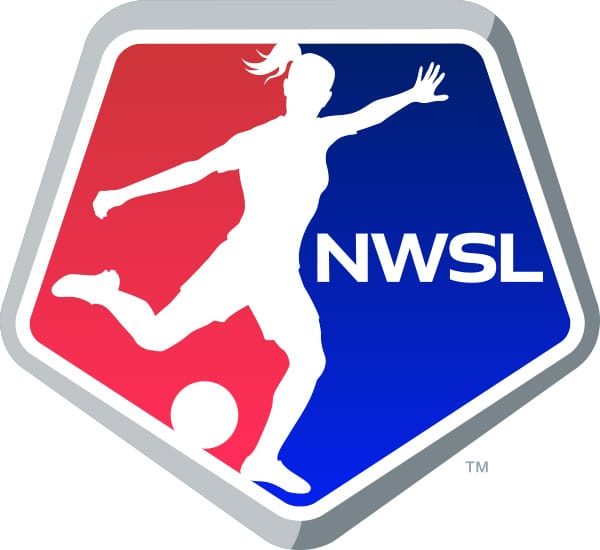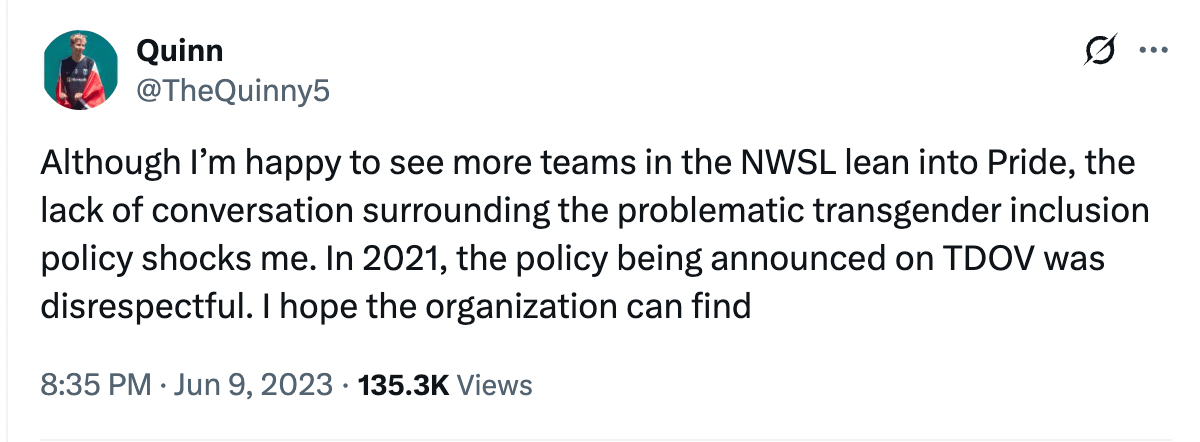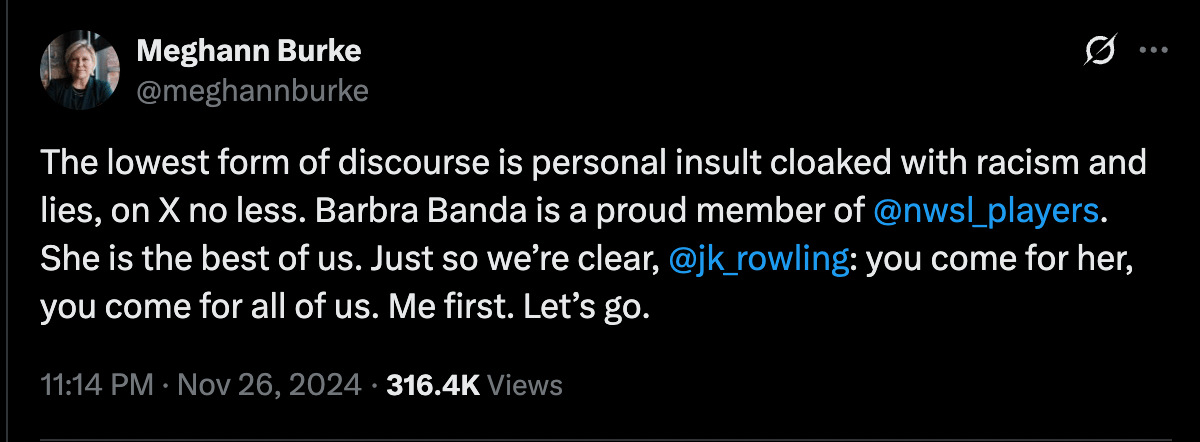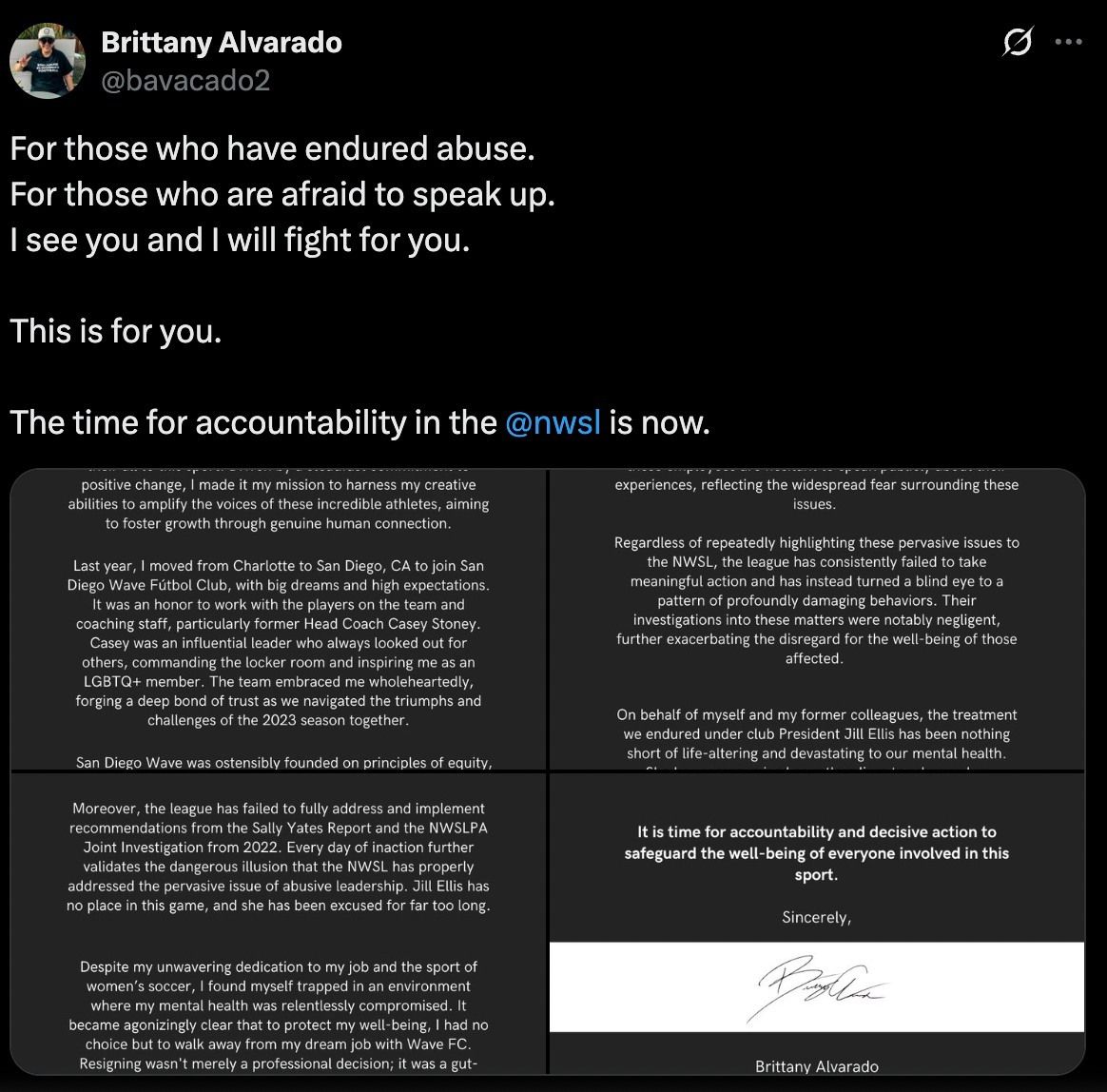- Still Not Sticking to Sports
- Posts
- Oops! They Did it Again (and Again)!
Oops! They Did it Again (and Again)!
The National Women’s Soccer League loves to talk about how the league is concerned about player safety. They sure have an odd way of showing it.

Remember how I was just talking about the NWSL’s inability to clear a low bar? Yeah, still a problem.
So, first up: The NWSL HAD a flawed transgender policy, and now it doesn't seem to have one at all. The league reportedly has quietly abandoned the existing policy soon after Jessica Berman took over as league commissioner.
This is very bad. And not just bad for transgender players. Cisgendered women’s bodies are often scrutinized by conservative groups. Black women athletes in particular are targeted by anti-transgender policies.
The 2021 policy was (rightly) criticized by Quinn, the league’s first nonbinary and openly transgender player (who has since relocated to their native Canada in light of recent U.S. federal and state policies toward transgender people). Among the problems with the league’s policy is its reliance on testosterone levels (which is based on bad science) and the exclusion of nonbinary athletes in the policy.

Allowing Bad-Faith Arbiters Decide Who “Looks Feminine”
But let’s circle back to how anti-trans lobby harasses women who don’t look “feminine” enough, which frequently puts Black women athletes in their crosshairs. It’s not a stretch to say that the Wenn Diagram of transphobes and racists is a single circle. This has been demonstrated time and again with the constant harassment of South African middle distance runner Caster Semenya, who has been subjected to sex verification tests and compelled to take testosterone suppressing drugs which left her feeling ill. Constant federation harassment ultimately forced Semenya out of competitive running.
Shortly after the Orlando Pride won the 2024 NWSL Championship, Barbra Banda, a Zambian player with the Pride, was targeted by anti-trans bigots including author J.K. Rowling. The attacks against Banda meant that her club’s celebration of their championship was cut short as the team immediately came to their player’s support. The NWSL Players Association also voiced support for Banda (a Black, cisgendered player), with NWSLPA President Meghann Burke directing her ire squarely at Rowling.

However, the league itself was strangely silent on the matter, officially outside of resharing Orlando’s message in support of Banda and issuing a weak response to questions from Meg Linehan of The Athletic:
“We are committed to fostering an environment where our athletes are supported and equipped with all the necessary tools to compete and succeed at the highest level,” a spokesperson for the league replied via a statement. “No one should have to endure or be asked to respond to baseless attacks and discrimination. Every resource at the league is available to Barbra Banda and we will support her fully as an NWSL player.
“We will continue to assess and refine our policies and resources to address emerging challenges so our players can focus on their careers without undue concern for their safety and well-being.”
Earlier this season there was an ugly incident at a match between Gotham FC and Orlando Pride where a Gotham season ticket holder hurled racist and transphobic insults at Banda. Again, both teams and the NWSLPA moved swiftly to condemn the fan’s actions (Gotham revoked their season tickets), and this time the league found a backbone and quickly issued a statement supporting the Zambian women’s national team player.
But maybe—hear me out, now—having a no-nonsense policy that protects ALL players against transphobic and racist jackasses might prove to be good policy for the league.
Harassment (and Assault) Remains a Feature, Not a Bug
Content warning: SA
In 2024, serious and disturbing allegations of abuse and harassment—including a report of sexual assault—were made against the San Diego Wave. The NWSL commissioned an investigation into the charges and, unsurprisingly, found no actionable issue with the way the Wave front office handled the sexual assault allegation, though the league stated that the Wave “could have done more.”
In addition to allegations by former staff member Brittany Alvarado that former team president Jill Ellis created an abusive work environment, two staff members reported that a male staff member repeatedly sexually harassed them and coerced “Jane Doe 1” into non-consensual sex.
If I’m reading this sentence correctly, this report says the club is off the hook because the victim(s) didn’t use the right word(s) in their complaint.
“An investigation commissioned by the National Women’s Soccer League found that the San Diego Wave front office “could have done more” to address a sexual assault allegation from a member of the club’s staff, but ultimately found no specific issue with how the claim was handled because the alleged victim did not use the term “sexual” when describing her experience.”
Give me a moment: my head just exploded.
Also from the article: “(The report’s) conclusions exemplify some of the bureaucratic and legal obstacles many employees face when attempting to report sexual assault in the workplace. These can include systemic ineffective reporting mechanisms and procedural complexities while individuals can experience retraumatization, minimization, subsequent poor workplace performance, and isolation.“
As someone who has faced sexual harassment and assault, I can tell you it’s incredibly difficult to even get management (or, when I was in grade school, administrators) to take you seriously, even when you have evidence. And I can envision a scenario where “Jane Doe 1” didn’t want to involve attorneys because victims are often intimidated—by the perpetrator AND administration—into not seeking legal remedy (or any remedy at all). And even if victims aren’t intimidated, trying to pursue legal recourse often means having to relive the trauma over and over again.
Case in point: Ellis has filed a defamation lawsuit against Alvarado for speaking out about her experience on social media.

I am heartbroken and outraged for Brittany Alvarado, “Jane Doe 1,” and “Jane Doe 2.” Not only must it feel like their trauma was not taken seriously by the Wave and the NWSL (via the legal firm investigating the charges), but to see a toxic executive like Ellis get promoted is salt in the wound. (Ellis is now the Chief of Soccer at FIFA. I mean, it’s a match made in heaven—or maybe somewhere south of there—but still frustrating to see toxic bosses get promoted.)
For a league that keeps claiming that, “The safety, health, and well-being of everyone associated with the NWSL is our highest priority,” their actions (or inaction, when it comes to sanctioning teams with credible harassment charges against them in recent years) speaks louder.
That the NWSL continues to let front office and technical staff abuse their power with no consequences says that they’re actually unwilling to do the bare minimum to protect players and employees.
I support women’s sports, but it’s getting harder and harder to support this league.